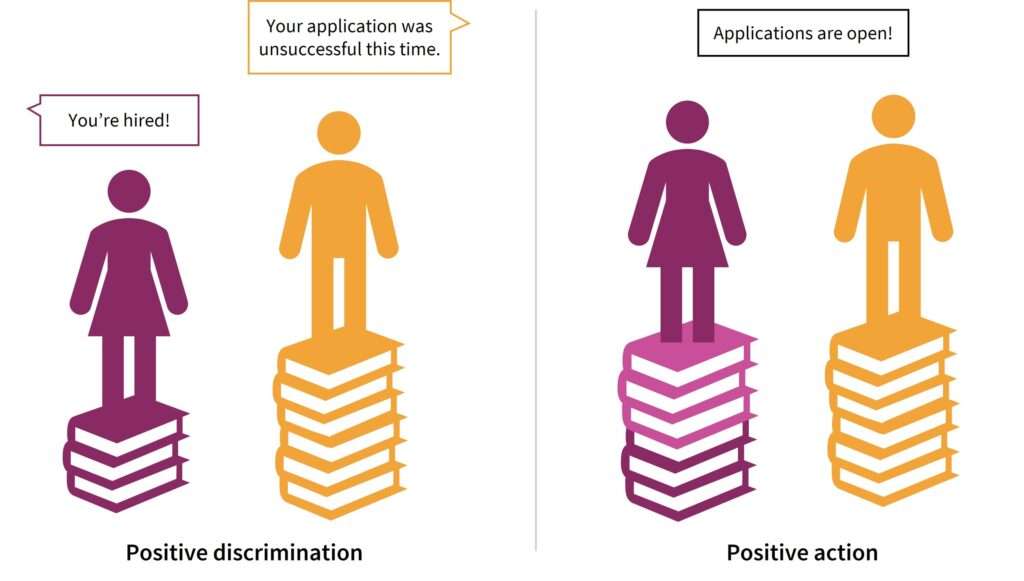According to Dr. Maliha Abubakar, a political scientist, the UN’s SDG Goal 5, along with NGOs and CSOs, is driving global efforts to enhance women’s participation in public life, spanning politics, public services, and the private sector, a crucial factor in fostering democratic growth.
Dr. Abubakar noted, however, that progress has been slow, particularly in politics and parliamentary representation, as highlighted by the International Parliamentary Union (IPU).
Speaking to the Vaultz News, she noted that, according to the IPU reports, global women’s representation in parliament increased from 26.1% in 2022 to 27.6% in 2023, still short of the UN’s 30% benchmark set for 2030.
Dr. Abubakar noted that Ghana’s women’s representation, at 14.5%, is even lower, with only marginal gains over the years: 11% in 2012, 35% in 2016, and 40% in 2020, showing that progress remains slow, both globally and in Ghana.
“And so you would say that, even though Ghana lags behind the global average, the percentage in Ghana is 14.5% as of now, but the global average is 27.1%, which means that Ghana is lagging behind other countries when it comes to representation, especially in parliament”.
“Again, when you take Ghana at the local level, I’m talking about our district assembly elections where we elect our assemblymen and assemblywomen. Again, women are performing badly at that level… The number of women’s representation has reduced drastically over the years. In 2006, the number of women who were elected to district assembly level was 478 out of 1,772 assembly members”.
Dr. Maliha Abubakar
She noted that women’s representation in local assemblies significantly declined by more than half between 2006 and 2019, from 478 to 216, a mere 13% of the total 1,700 positions.
Dr. Abubakar noted that the 2018 local assembly election saw only 216 of 909 female candidates elected, suggesting that women’s underrepresentation stems not from disinterest, but from a range of local and national barriers that force women out of politics.
She noted that women are underrepresented in Ghana’s national leadership, with only six women holding substantive ministerial positions, ten holding deputy minister positions, and two holding regional minister positions.
Dr. Abubakar further lamented that women led just 15% of government agencies (19 out of 127) and occupied a mere 8% of board chair positions (9 out of 108) as of 2022.
She noted that these statistics reveal a substantial gender gap in leadership positions, underscoring the necessity of enhancing gender equality and representation in Ghana.
Ghana Commits To Gender Equality With Affirmative Action Bill
Speaking about the recently passed Affirmative Action and Gender Equity Bill, which awaits the president’s signature, Dr. Maliha Abubakar noted that passing the law is a significant step, but it is only the beginning.
She pointed out that a legal document will facilitate implementation, unlike previous policies that were frequently disregarded or given only superficial support.

She expressed her hope that the law will be enacted soon, which will provide a solid foundation for promoting gender equity.
“…It’s one thing, passing the law, but we need commitment on the part of government and the real power to implement the law. Because we [Ghana] are signatories to all these international, organizations like the UN, and we signed on to the SDG, after 2015. And we gave ourselves that by 2030, we should have about 30% representation [of women]”.
“We have a policy which says that we should try and appoint at least 30% of women into all public offices. So it’s not as if there has never been a guiding document for the government to follow. There has always been a document. But the issue here is the will to implement these policies”.
Dr. Maliha Abubakar
However, Dr. Abubakar expressed confidence that with the law in place, the government will be compelled to take action and implement it.
She expressed optimism that the law’s implementation will lead to a substantial surge in women’s representation in Ghana’s parliament, ministerial roles, corporate boardrooms, and government institutions.
Addressing Discrimination And Tradition
Moreover, Dr. Maliha Abubakar identified discrimination, traditional gender roles, and unsupportive families as the key barriers to women’s participation in leadership and politics in Ghana.
She pointed out that societal expectations of women in caregiving roles similarly restrict their participation in politics.

Dr. Abubakar emphasized that although the newly enacted bill cannot eradicate deeply ingrained social barriers and limitations, it can effectively combat discrimination and exclusion, thereby fostering gender equality in the political sphere.
She also called for the establishment of quotas to reserve leadership positions and parliamentary seats for women, aiming to help Ghana achieve the UN’s target of 30% women’s representation.
“Because if the law says, maybe let’s introduce a quota system and let’s reserve 10 seats for women, definitely, those 10 seats would go to women. Whether you want to vote for women or not. I am sure the law would ensure that only women contest certain constituencies at a particular point in time so that women would be filled in in parliament. And so at least it will help resolve that part”.
“I think what we can do to resolve the traditional practices that we have, that discriminate against women, is to embark on a lot of education, public education, and public sensitization. Let people understand that women are as human as men and that they both have capabilities. If a woman is able to take care of the family and manage the children very well to become responsible citizens, why can’t a woman manage our resources in the nation? Because we know they are very diligent at that”.
Dr. Maliha Abubakar
Dr. Abubakar observed that to achieve gender equality, Ghanaians must reengineer their thinking, beginning with the family unit.
She stressed that families must nurture children to recognize their equal value and potential, irrespective of gender, and offer them equal chances to succeed, helping to break down traditional barriers that restrict women’s roles.
Dr. Abubakar stressed that parents and guardians have a crucial role in teaching children that women possess the same problem-solving abilities as men, thereby helping to break down gender stereotypes and promote a more inclusive society.
“If we really want to change the mindset of the Ghanaian, then it should start at the household level”. – Dr. Maliha Abubakar
She pointed out that women’s success in various sectors proves they can excel in politics too, if given the right environment and opportunities to thrive.
Combating Tokenism
Furthermore, Dr. Abubakar emphasized that to combat the perception of tokenism associated with affirmative action, it is essential that the public recognizes the existing problem in society: the imbalance in representation between men and women.
She emphasized that if society acknowledges the existence and severity of this imbalance, it can then work towards addressing it, with affirmative action being the key solution.

Dr. Abubakar emphasized that recognizing the root causes of unequal representation is crucial, as women will continue to be disadvantaged unless these factors are confronted and addressed.
“And besides, through this affirmative action, it’s not as if we are just going to pick women anywhere to come and lead. I’m sure they would still have to compete among themselves to win, to occupy those positions”.
“And once they get there, I’m sure their ability to perform and excel would vindicate them or would show the society that they are not just there because they are women. They are there because they have the qualifications and they have the capacity to do the work. No matter what people say, I think the spirit of women should not be dampened by the feelings or by the perceptions that they are there because of affirmative action”.
Dr. Maliha Abubakar
She maintained that traditional biases may prevent even the most exceptional women from being considered for leadership roles, highlighting the need for affirmative action.
Dr. Abubakar emphasized that it’s not about compromising standards, but about providing qualified women with a fair opportunity to excel and demonstrate their capabilities.
As such, she pointed out that even if perceptions of tokenism persist, prioritizing merit and equality remains essential.
Positive Discrimination
Dr. Abubakar further acknowledged that the Affirmative Action Bill may be perceived as discriminatory against men, but clarified that it is a form of positive discrimination intended to rectify historical injustices.
She indicated that in the early 2000s, universities implemented positive discrimination towards women by adjusting admission cutoff points, specifically, if the cutoff point for men was 10, it was 14 for women.
Dr. Abubakar stated that this measure corrected the long-standing educational imbalance, wherein men had consistently outnumbered women.

As such, she noted that, in a similar vein, implementing positive discrimination in parliament can help achieve gender balance and ensure equal representation.
“Women are not there in parliament not because they are unqualified, but because of society’s perception of the ability of the woman to lead. And so this has resulted in an imbalance in our politics for a very long time, and we need to correct that”.
“The only way we can do that is by introducing the quota system. And other countries like Rwanda have done it, and they are doing excellently well. There should be a way to work the quota system out to ensure that no one feels they have been discriminated against. That can be done easily”.
Dr. Maliha Abubakar
Dr. Abubakar emphasized that without a quota system, the affirmative action bill would be a mere charade, lacking genuine commitment to its effective implementation.
Women’s Inclusion Key To Democratic Growth
Moreover, Dr. Abubakar stated that the Affirmative Action Bill’s success, once implemented, can be gauged by its achievement of the predetermined objectives.
She noted that, for example, the bill’s objective to increase representation by a certain percentage can be evaluated by comparing its actual outcome to its intended target over a defined timeframe, with success being achieved if the goal is reached, and failure resulting if it is not.
Dr. Abubakar argued for greater female inclusion in politics, emphasizing that all citizens, irrespective of gender, possess the potential to enhance Ghana’s democratic growth.
Consequently, she asserted that the country must foster opportunities for women’s engagement and ensure their voices are heard, pointing out that this allows women to bring their unique insights and experiences to the forefront.
She observed that history offers inspiring examples of exceptional female leaders like Margaret Thatcher, who showcased the valuable impact women can have when given the chance to lead.
“We can talk of Angela Merkel who has put the name of Germany in a very positive light throughout her role as chancellor. People have always asked whether there would be people who will be able to feel the shoes that Angel Markel left behind. So it’s not as if we have not had grades with the leaders. We’ve had them”.
“We just need to give them the opportunity, and they will show that they are as capable as their best counterparts”.
Dr. Maliha Abubakar
Dr. Abubakar suggested that, ideally, the Affirmative Action Bill should be comprehensive and inclusive, ensuring that all women can benefit from its provisions.
She warned that a non-inclusive bill would exclude some women from its benefits. However, she stressed that a focus on inclusion would ensure the bill benefits all intended recipients.
READ ALSO: Patel Criticizes Farage’s Riot Comparisons







